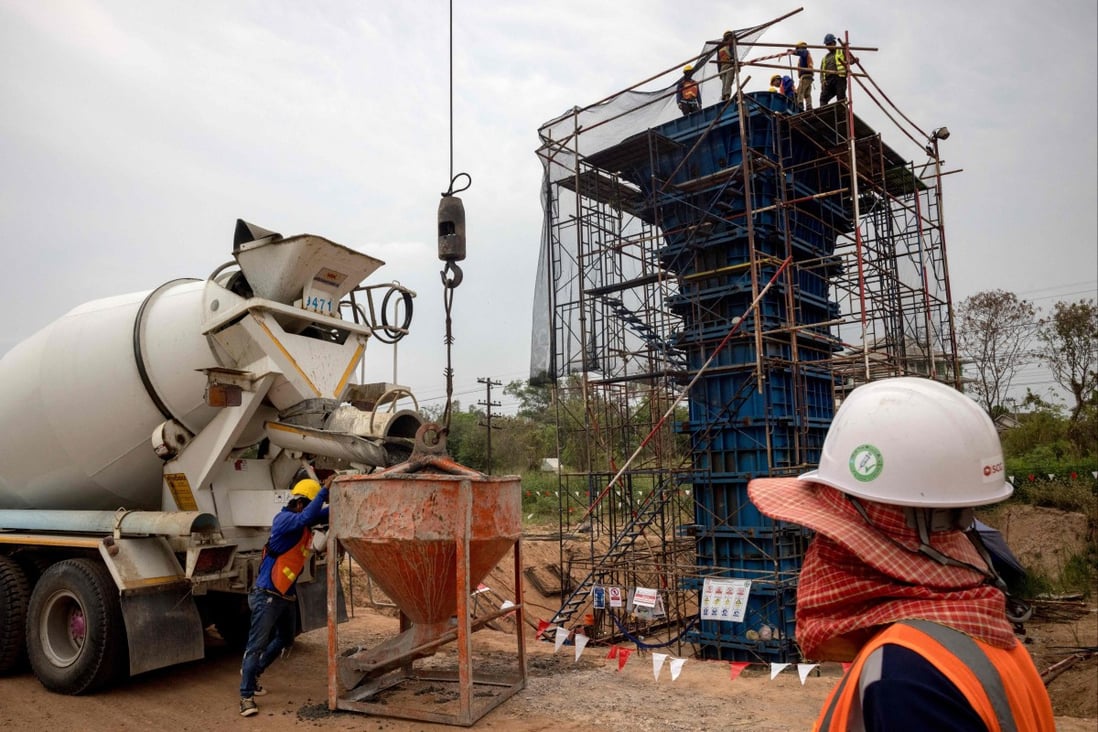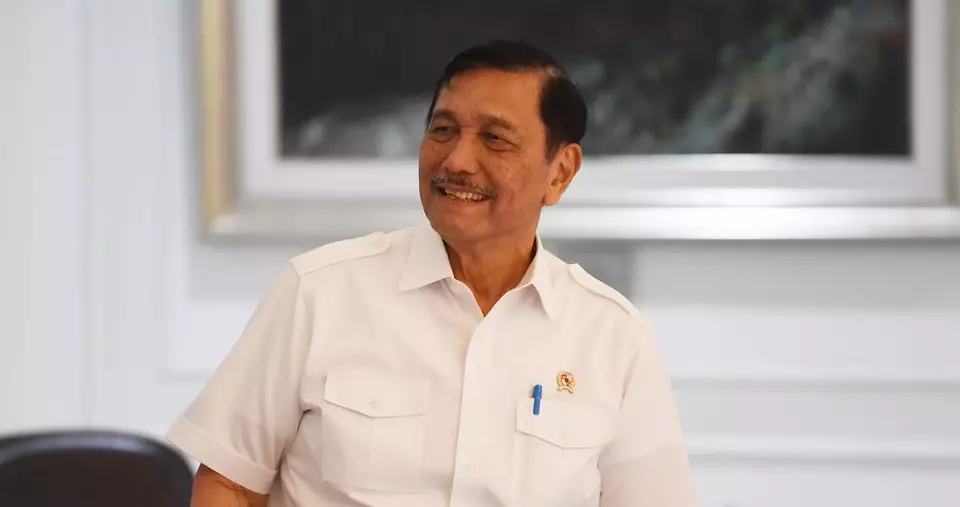China will transfer high-speed railway tech to Thailand, engineers say
- Agreement in principle to pass on technology, skills and knowledge in 11 areas of railway construction, according to Chinese team
- They are involved in negotiations on a line being built from Kunming to Bangkok and say Thailand wants ‘greater role in future cooperation’
in Beijing Published: 9:00am, 15 May, 2023 Updated: 9:00am, 15 May, 2023
Workers construct a pillar as part of the Thai-Chinese high-speed railway project in Nakhon Ratchasima province in March. Photo: AFP
China has agreed to pass on some of its know-how to
so that the Southeast Asian nation can develop its own high-speed railway network, according to Chinese engineers involved in the negotiations.
“As cooperation on the China-Thailand High-Speed Railway project deepens, Thailand’s desire to design and construct high-speed railways on its own has gradually become stronger. They hope to play a greater role in future cooperation,” the team led by Gao Rui wrote in Chinese journal Railway Standard Design last month.
“In response to Thailand’s repeated requests for technology transfer and teaching on China’s high-speed rail technology at joint committee meetings, China has agreed to pass on the technology to Thailand under the premise of not violating Chinese laws,” said Gao, a senior engineer with state-owned China Railway International Group and a member of its overseas engineering management and technical negotiations team.
Under Chinese law, companies and individuals must obtain government approval to export technologies that are deemed critical to national security or the country’s economic interests.
China has the world’s largest high-speed rail network, which was built in just 15 years. The network spans more than 40,000km (about 24,800 miles) – or long enough to circle the Earth. The country’s engineering experience, knowledge and technology could be useful to others wanting to build similar infrastructure rapidly and at a relatively low cost.
For example, China has developed modular designs for railway stations and other infrastructure components that can be quickly assembled on site. New materials for railway tracks that can help reduce maintenance costs over the long term – such as high-strength steel and concrete ties – have also been developed.
Gao’s team said China had “agreed in principle to conditionally transfer or pass on technology, skills and knowledge in 11 areas” of high-speed railway construction to Thailand.
Technology transfers between organisations or countries can involve transferring patents, licences or other intellectual property rights, according to a railway scientist in Beijing who is not part of the negotiations and requested anonymity.
Information and expertise is typically shared through training programmes, workshops and other activities. And while such transfers are usually done for a fee or other compensation, the scientist noted that “it can be free”.
According to Gao’s team, China could provide Thailand with information on materials used in constructing the railway tracks and the best practices for laying tracks in different terrain.
Other expertise that could be passed on includes designing railway stations for improved passenger flow, building bridges over rivers or other bodies of water at a faster speed and lower cost, preparing the ground under railway tracks to make it stable and secure, and how to design and build safe tunnels.
In the paper, Gao’s team said other important tips to improve construction quality and speed would also be shared – from land surveys and managing nearby water resources to tunnel lighting and the heating, ventilation and air-conditioning systems in stations and other facilities.
The China-Thailand railway project will extend 873km – from Kunming in southwest China to Bangkok in Thailand – with trains travelling at speeds of up to 250km/h.
It is an important part of Beijing’s
as it will be a key link in the “southern corridor” connecting China with Southeast Asia. It will pass through Thai cities including Chiang Mai and Nakhon Ratchasima and will connect with other transport networks in the region such as the Laos-China Railway and the Malaysia-Singapore High-Speed Rail.
The railway is expected to help facilitate trade between China and Southeast Asia by providing faster and more efficient transport for goods, boosting tourism and creating new business opportunities.
In the first phase, a 250km railway line is being built between Bangkok and Nakhon Ratchasima, with China playing a key role in the design and construction.
For phase two, a 355km railway line will be built between Nakhon Ratchasima and Nong Khai, located on the border with Laos. Gao’s team said the Chinese role in this phase would be reduced, with Thai companies taking on more of the design and construction.
The final phase of the project will see a railway line built from Nong Khai to Vientiane in Laos. That section will connect with the Laos-China Railway, which is also being built as part of the belt and road scheme.
According to the Chinese team, negotiations on the Thai project were “very difficult”. Thailand declined China’s offer to finance the entire project, opting instead to use a mix of government funds and private investment – and putting negotiations on a more equal footing.
Among the issues on the table were China’s high-speed railway standards, which are not always compatible with international norms and had to be reviewed and evaluated by Thai officials to ensure they met the country’s safety and regulatory requirements.
The qualifications of the Chinese engineers involved in the project were also an issue. “There is no mutual recognition mechanism for the qualifications of engineers and architects between China and Thailand, so the Thai side does not directly recognise the relevant technical qualifications of Chinese technical personnel,” Gao said in the paper.
She said the Chinese engineers had to undergo an additional training and certification process so they could work on the project.
According to the Chinese team, the technology transfer is conditional on Thailand switching to China’s high-speed railway standards.
“Western countries like the United States and Europe have established industrial standards that have been in use for over a century,” the team noted in the paper. “Even in less developed countries along the belt and road, Western standards continue to have significant influence. Many of Thailand’s subway projects use European or Japanese standards.”
Chinese high-speed trains can reach speeds of up to 350km/h, faster than most bullet trains in Europe and Japan. They are also typically longer – the Fuxing used on the Beijing-Shanghai line is more than 400 metres (1,300 feet), nearly twice the length of the TGV in Europe.
China also uses its own signalling system for its network, which is not compatible with the European or Japanese ones.
Gao’s team said the Chinese engineers had insisted on using the country’s railway standards during the negotiations with Thailand, on the basis that it would be more cost-effective and easier to integrate with existing railway infrastructure in China and other countries in the region.
The transfer of technology involved in the design and manufacture of Chinese trains such as the CRH380 series, as well as other advanced technologies like power supply, is still being negotiated between Beijing and Bangkok, according to the paper.
China holds patents on certain track materials and signalling systems used in its high-speed railway network, and the team said the negotiations could involve determining how the patents would be licensed or shared with Thailand.




